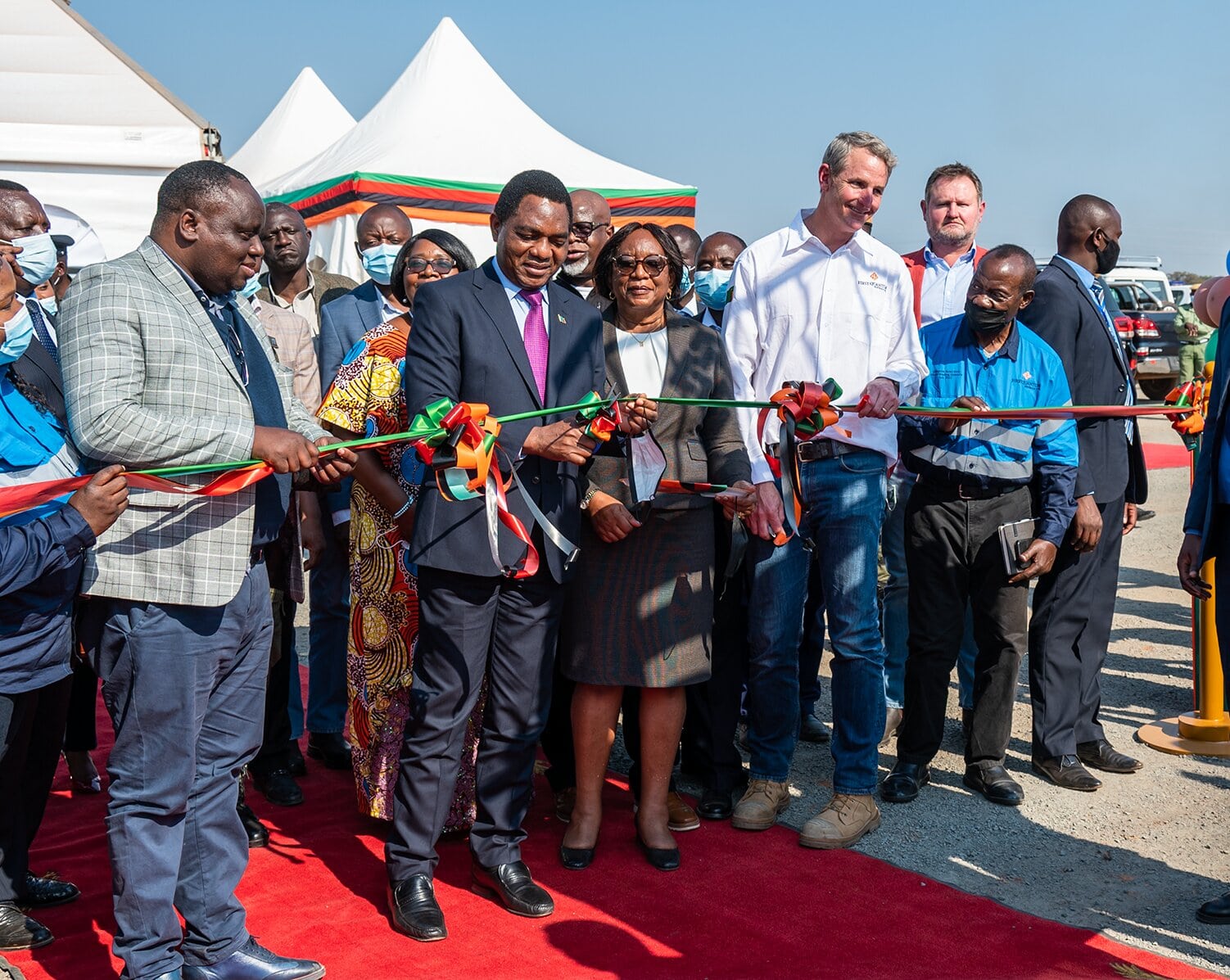Zambia is making great strides in the use of information and communication technology (ICT) as a tool for national development, with a goal to transition to a digitally-enabled economy by 2030.
Digital financial services (DFS) came early to Zambia, with the payment service provider Celpay launching in 2002 and Zoona in 2009. Later DFS was launched by mobile network operators (MNOs): Airtel in 2011, MTN in late 2012 and Zamtel in 2017, boosting financial inclusion.
Apart from the MNOs,a number of organisations from the private sector have introduced robust programmes to drive ICT usage. For example, the UN Capital Development Fund (UNCDF) and Financial Sector Deepening Zambia have partnered since 2015 to run the Mobile Money for the Poor (MM4P) programme,a building block in sustainable financial inclusion.
“MM4P is supporting and cooperating with banks, mobile network operators and regulators to help them reach unbanked customers,” said Zerubabel Kwebiiha, UNCDF digital financial services expert. According to UNCDF, 56 percent of the population own mobile phones and of these, 17 percent are registered users of DFS. There 12 active DFS agents per 10,000 adults.
Customers are using digital accounts from banks, mobile money and payment service providers for payments, savings, credit and insurance with many using these services to pay for basic necessities, pay school fees and receive cash transfers.
“FSD Zambia’s work has significantly aligned and influenced important policy and digital infrastructure reforms recently, including the expansion of cell and internet signal across the country, the opening of the Movable Property Registry System, piloting a digitalised school payment solution, updating financial education curricula for grades 1 to 12, and helping to cover 1,054,078 farmers with FISP Weather Index Insurance,’’ elaborated Betty Wilkinson, CEO of FSDZ.
The organisation recently partnered with Zazu, a Zambian tech start up, to deliver financial literacy courses via mobile phones. This service has unveiled access to important financial information, helping people live better lives, straight from their phones. Over 5,000 users have been reached.
Presently, the Zambian government is undertaking several ICT infrastructure development projects to improve access and reach of technology, minimise financial exclusion, increase transparency and reduce response time in terms of information dissemination to its citizens. One such initiative is Smart Zambia, a division under the Office of the President to bring about improved service delivery through e-government. Smart Zambia aims to accelerate social and economic development through ICT.
The use of ICT initiatives has been recognised as a major contributor to the national development agenda. Based on this, government plans to leverage the Smart Zambia initiative to promote the use of ICT, as well as enhance productivity and service delivery.
Notably, as part of the Seventh National Development Plan (7NDP), government plans to leverage the use of ICT to accelerate the diversification of the economy, particularly towards agriculture, manufacturing, tourism and energy.
In the agriculture sector implementation of the e-voucher system which was rolled out to districts across Zambia in 2017/18 farming season for improved efficiency, transparency and accountability in the administration of the Farmer Input Support Programme (FISP). Out of a total of 804,260 farmers, 89 percent were able to access inputs.
Another sector benefiting from ICT is tourism. Implementation of the e-visa and enhanced use of e-marketing platforms contributed to the 6.1 percent growth of the sector in 2017.
The Zambian government through a partnership with EXIM Bank of China, secured a $280 million loan to facilitate the construction of mobile towers in 2018. Thus far, 318 out of 1 009 towers have been constructed. Upon completion, it is expected that coverage will be improved from the current 84 percent to 95 percent of the country. Subsequently, this is expected to drive financial inclusion.
ICT is being used to not only improve service provision but also improve collection of both tax and non-tax revenue in a more cost-efficient manner. An electronic payment system for public services has been implemented to enhance transparency and minimise leakages in the collection of non-tax revenues.
ICT has also contributed to broadening the tax base and enhancing compliance levels through digitalisation of revenue collection processes.
The implementation of an electronic cabinet system in 29 ministries and 10 provincial administration offices resulting in over 85 percent cost-saving for government. A switch by the government to an electronic payslip system has resulted in the saving of K72 million since its implementation. Technological advancements such as these result in less wastage and fewer funds slipping through the cracks and therefore government having more funds for use in developmental projects.
Doing business in Zambia is now a more streamlined process and is no longer as time-consuming as it used to be. More than ever, the economy is beckoning for accelerated foreign direct investment (FDI) and locally-based enterprise development. The introduction of online business registration by the Patents and Companies Registration Agency (PACRA) has made the practice of business easier for entrepreneurs and foreign investors.
One landmark on the business horizon was the launch of the Lusaka One Stop Shop (OSS) in June 2010 in line with reforms undertaken by government under the Private Sector Development Reform Programme (PSDRP). The OSS is aimed at providing both local and foreign investors with fast, efficient and business-friendly registration services, thus reducing the cost of doing business.
Key stakeholders of the OSS include PACRA, the Zambia Revenue Authority (ZRA), National Pensions Scheme Authority (NAPSA), Citizens Economic Empowerment Commission (CEEC), the Department of Immigration and the Zambia Public Procurement Authority (ZPPA), among others.
‘’The One Stop Shop Integrated System (OSSIS) is an information exchange ICT programme that enables stakeholders to share client registration information. This facility drastically reduces the documents investors need to carry from one desk to another and speeds up the registration process. Everything is done online and the client receives their certificate authorised by all the relevant agencies within two hours,’’ the Zambia Development Agency (ZDA) says.
It is a fact that in today’s fast-paced business environment, ICT has become the foundation stone for the construction of sustainable operations and growth of any enterprise.
ICT has facilitated the efficiency of revenue collection, improved the national payment system, enhanced service delivery and eased the process of doing business, which were overly time-consuming and tedious in the not-too-distant past.















